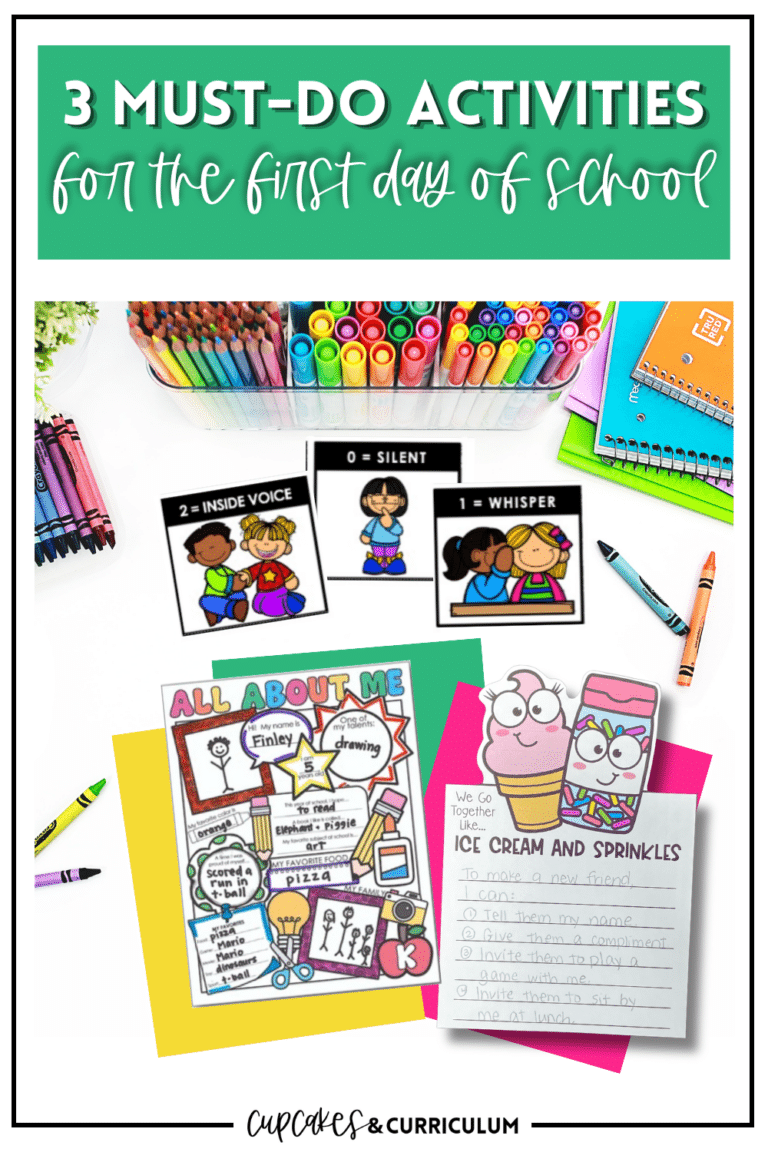
 Having a student teacher is something that most teachers will experience at least once in their career. How can you make sure that you are the best mentor possible for this future teacher? Here are my six tips on how to be the best mentor teacher for your student teacher!
Having a student teacher is something that most teachers will experience at least once in their career. How can you make sure that you are the best mentor possible for this future teacher? Here are my six tips on how to be the best mentor teacher for your student teacher!
Tip #1: Be a mentor.
Remember that your role, first and foremost, is mentor. Don’t cross too far into the ‘friend zone’ with your student teacher – this could blur the lines of professionalism and could even cause your student teacher to not take his or her role as seriously as they should!
Talk about your weekend plans, your fam, your friends…. maaaaybe just leave out the story of how you enjoyed too much wine or the stories of your own college days 😉 You want your student teacher to view you as an expert in your field. Be relatable, but also remember that this person is looking up to you!
Tip #2: Be realistic.
We all know that our job as a teacher is not easy. There are days where you question your career choice, no doubt. However, this person looking up to you is right in the thick of spending thousands upon thousands of dollars as they dream of having a “real job” as a teacher – don’t crush their dreams!
Being realistic about our career is another story. You DO want your student teacher to see an accurate picture of what their job will be. It isn’t always easy – there are difficult parents, rebellious students, demanding expectations from admin, and complicated relationships with co-workers.
So how do you hover the line of being realistic without being negative? Try to take time at the end of each day, during lunch hour, or at the end of each week to talk with your student teacher about the positive things happening. Sure, Trevor might have flung a booger across the room during your read-aloud…. BUT did you notice how awesome his question was during math?!
Finding the positive will help your student teacher see that along with the hardships, teaching can be so incredibly rewarding…. plus, the positivity won’t hurt your spirit, either!
Tip #3: Be open.
Whether you have been teaching for 30 years or 3… your student teacher is in college classes right now hearing the latest research based teaching methods and learning about our 21st century learners. We all know that the research isn’t everything, but don’t be above learning from your student teacher! Ask them about their classes and what they are learning. Find out what they are passionate about, and see if there is an opportunity in your classroom for them to show that to your students (and you!).
When you give your student teacher the vibe that YOU are open to learning from THEM, it will also create this reciprocal relationship where they feel comfortable asking you questions. Make sure your student teacher has a paper or notebook with him or her ALL DAY so they can jot down their questions, and make sure to go over them at lunch, after school, or at the end of each week.
Tip #4: Be present.
If you are looking forward to having a student teacher because it means less work for you… you miiiight be doing it for the wrong reasons. Sure, you may have less to do in terms of physically teaching and planning at some point… but your work as their mentor is non-stop.
“Checking out” while they are teaching isn’t the responsible thing to do. They are new – the ‘teacher instinct’ that you have earned through experience is something they don’t have yet. Not only that, but those kids are still YOUR students. You will be held responsible for what goes on in your classroom and how much they learn. Make sure that the person teaching them is being the strong role model and teacher that they need to be!
Your student teacher NEEDS your attention and your feedback. Which brings us to the next tip…
Tip #5: Be honest.
I don’t know about you, but it is hard for me to tell someone that they aren’t doing it right. I’m always afraid of hurting feelings, being discouraging, or seeming like a know-it-all. BUT — the only way that your student teacher can fix something that you think they could improve upon is if you communicate with them.
Honest communication is crucial for your student teacher to have the learning experience that he or she needs while they are in your classroom. My favorite way to give feedback to student teachers is through a form I made called “Celebrations & Opportunities.” It is a simple T-Chart that I fill out as I observe them teaching a lesson or interacting with students. (Keep reading to get this form for free!)
In the Celebrations column, I list the things that I think they did well. Did you notice them taking some prior feedback and applying that to their current lesson? Celebrate!
Did they use a great management strategy? Celebrate!
Did you like the way they explained a concept? Celebrate!
In your celebrations, be as specific as you can — don’t just tell them they had good classroom management… tell them what management strategy you observed that was effective.
In the Opportunities column, I list opportunities for improvement. Instead of wording them as negatives, I turn my feedback into a positive action statement. I could say that their classroom management was poor… OR I could say that I would like to see them utilizing the clip chart more often to manage behavior and to celebrate students doing a great job.
Remember that at the end of the day, this person will be someone’s co-worker and teammate. Be honest in your feedback so that they grow into the kind of teammate that you would love to work alongside!
Tip #6: Be reflective.
At the end of the day, always ask your student teacher their thoughts on the day – it is so important that they have a voice in their own progress.
Before you look over the Celebrations/Opportunities notes from each day, ask them:
What would YOU celebrate about this lesson?
Is there something during your lesson that you’d like the opportunity to improve?
Their answers to these questions are great insight for you as their mentor to understand how they view their own teaching.
Do they think they rocked the lesson while you saw many opportunities for improvement? This shows you that you will need to help them be much more reflective and aware while they teach… you would never know to work with them on this unless you asked those initial questions.
You may need to model this reflective process for your student teacher in the beginning. Fill out a Celebrations/Opportunities sheet for yourself (or have them fill one out on YOU!) and show them what it means to reflect on the positives and negatives in their teaching.
Reflecting is not only important while your student teacher is a “student.” Reflecting is an important habit for ALL teachers at any stage in their career, so showing them how to think productively about their teaching is setting the best example.
If you are looking for an awesome way to welcome your student teacher to your classroom AND to provide them with a place to organize all of their to-do’s, observations, calendars, and lesson plans… check out the Student Teacher Welcome Binder!
What else would you add to this list of tips for teachers getting a student teacher? I’d love to hear your tips, so leave a comment below!!
